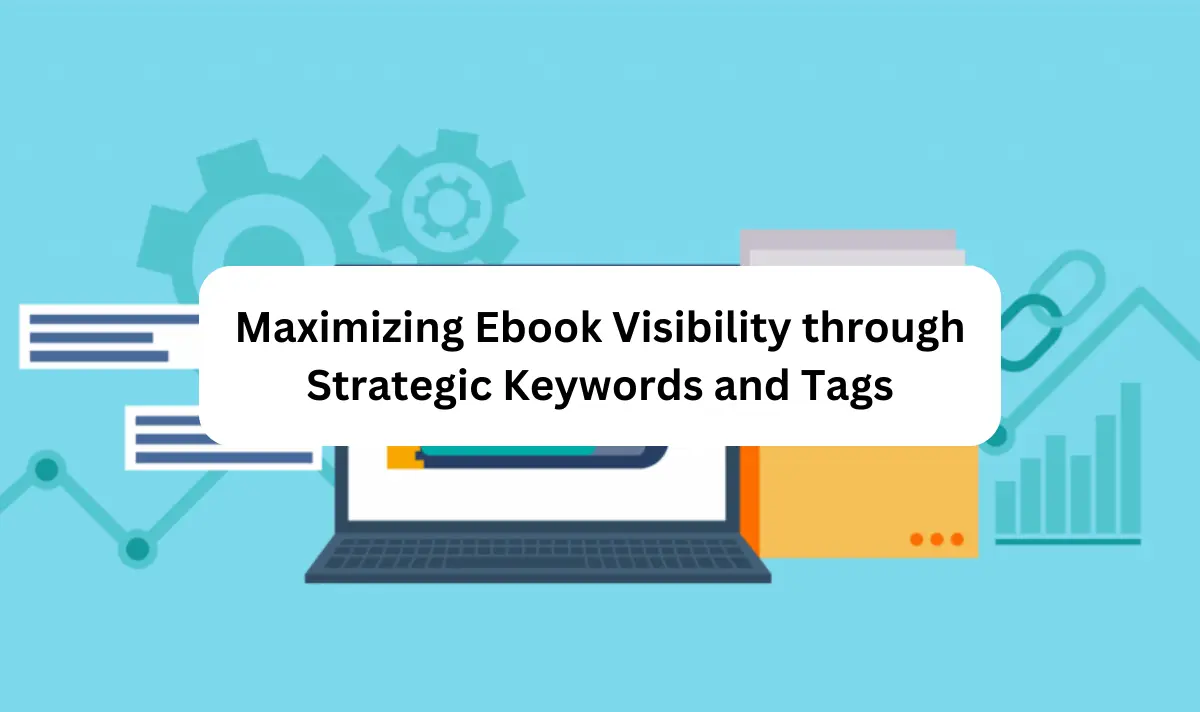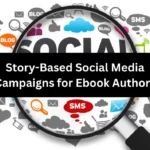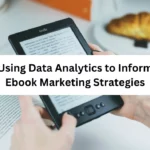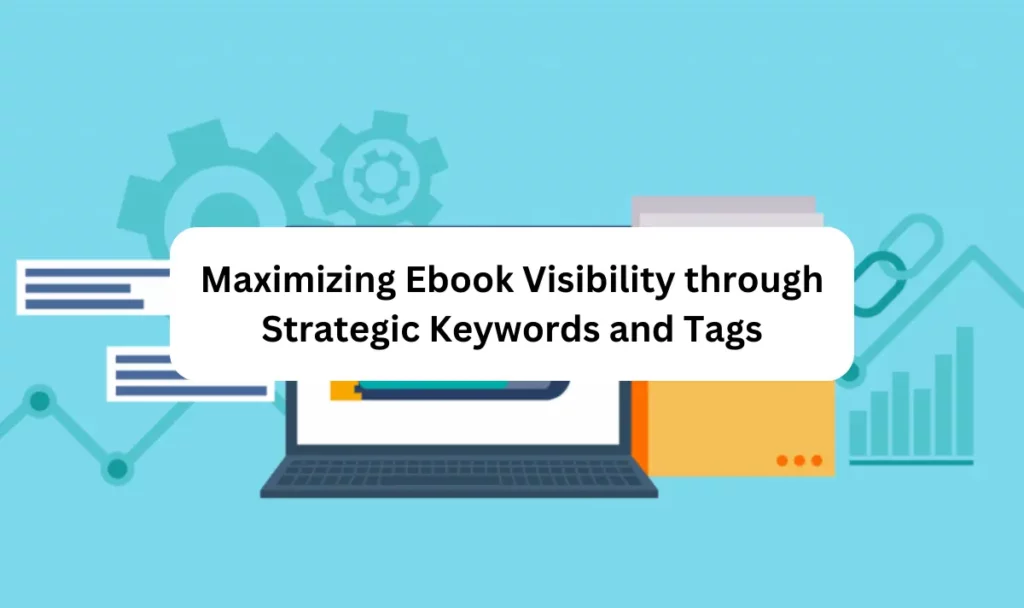
Introduction
Are you an aspiring author or publisher looking to boost the visibility of your ebook in the vast digital market? Well, fret not! In this blog post, I will guide you on how to maximize your ebook’s discoverability by using strategic keywords and tags. By implementing these effective techniques, you can ensure that your masterpiece reaches its intended audience effortlessly. So, let’s dive into the world of keyword optimization and watch your ebook soar!
Content
Optimizing Ebook Titles and Subtitles with Targeted Keywords
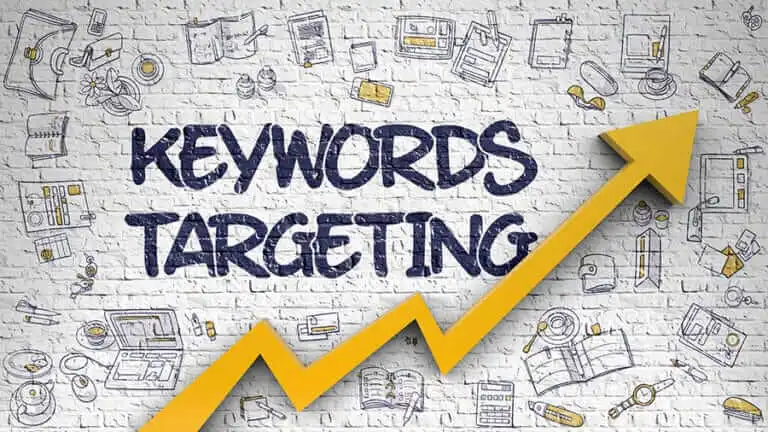
As an avid reader myself, I know how crucial it is for a book title to catch my attention. In this section, I’ll share some valuable tips on creating compelling titles that incorporate primary keywords, ensuring your ebook stands out in the crowd. Additionally, we’ll explore the importance of incorporating secondary keywords in subtitles for better optimization.
Read more article: Using Data Analytics to Inform Ebook Marketing Strategies
1. Creating Captivating Titles
When it comes to ebook titles, first impressions matter! To grab the attention of potential readers and search engines alike, consider these tips:
- Primary Keywords: Start by identifying primary keywords relevant to your ebook’s genre or topic. These are the terms readers are likely to search for when looking for content like yours.
- Concise and Impactful: Craft a title that succinctly conveys what your ebook offers while leaving a lasting impression. Think about using action words or intriguing phrases.
- Unique Selling Point (USP): Highlight any unique aspects or benefits within your title that set your ebook apart from others in its category.
2. Enhancing Optimization with Subtitles
Subtitles provide an excellent opportunity to optimize further and attract more readers:
- Secondary Keywords: Incorporate secondary keywords related to specific themes or subtopics covered in your ebook into subtitles strategically.
- Organizational Structure: Use subtitles as sections within your book to create a clear structure while optimizing them with relevant secondary keywords.
- Clarity and Coherence: Ensure each subtitle accurately represents its corresponding content and maintains coherence throughout the book.
By following these guidelines when crafting both titles and subtitles, you can maximize discoverability through keyword optimization while captivating potential readers right from their very first glimpse at your ebook!
Leveraging Categories and Metadata for Enhanced Visibility

In today’s saturated ebook market, it’s crucial to make your work stand out. One effective way to enhance your ebook’s visibility is by leveraging categories and metadata. In this section, I’ll share valuable insights on selecting appropriate categories on publishing platforms like Amazon Kindle Direct Publishing (KDP) and making effective use of metadata such as author name and series information.
1. Selecting Appropriate Categories
When publishing your ebook on platforms like KDP, choosing the right category plays a significant role in improving discoverability:
- Relevance: Select a category that accurately represents the genre or topic of your ebook. Choose one that aligns with what readers are searching for.
- Competition Analysis: Research similar ebooks within each potential category to evaluate their popularity and competition levels.
- Niche Opportunities: Consider exploring subcategories or niche genres where you can potentially reach a more targeted audience.
2. Effective Utilization of Metadata

Metadata provides vital information about your ebook that helps both readers and search engines understand its content better:
- Author Name: Ensure consistency across all your published works by using the same author name variant(s). This builds recognition among readers who enjoyed previous books.
- Series Information: If your book is part of a series, include relevant details such as series title, book number, or chronological order if applicable.
- Keywords in Descriptions: Incorporate relevant keywords strategically into descriptive fields like book descriptions or blurbs to improve search engine optimization (SEO).
By carefully selecting categories aligned with your target audience’s interests and effectively utilizing metadata elements like author names and series information along with well-placed keywords in descriptions, you can significantly enhance the visibility of your ebook.
Expanding Reach with Relevant Tags and Keywords
In the vast landscape of ebooks, utilizing relevant tags and keywords is a powerful strategy to expand your reach and connect with your target audience. In this section, I’ll share valuable insights on using popular tags that align with your book’s genre or topic, as well as strategies to find niche-specific tags that resonate with your desired readership.
1. Using Popular Tags for Genre Alignment
Popular tags can help categorize your ebook effectively and attract readers who are specifically interested in its genre:
- Genre Research: Conduct thorough research on the most commonly used tags within your ebook’s genre. This helps you understand what terms readers associate with similar books.
- Tag Selection: Choose popular tags from established platforms like Amazon or Goodreads that accurately represent the themes, settings, or characters present in your ebook.
- Balancing Relevance: Ensure selected popular tags truly reflect the content of your book while resonating with potential readers.
2. Strategies for Niche-Specific Tags
Finding niche-specific tags allows you to narrow down further and directly connect with individuals seeking unique content:
- Targeted Audience Analysis: Identify specific characteristics of your target audience such as interests, demographics, or sub-niches related to their preferences.
- Keyword Research Tools: Utilize keyword research tools like Google Trends or SEMrush to discover less competitive but highly relevant keywords specific to your niche.
- Author Communities & Forums: Engage in conversations within author communities and forums tailored toward your genre; observe which terms frequently arise during discussions.
By skillfully incorporating both popular genre-aligned tags and niche-specific keywords into metadata fields when publishing an ebook, you increase the likelihood of attracting engaged readers looking for precisely what you have to offer.
Recommended for you: Ebook Marketing for Genre Crossovers and Hybrid Books
Conclusion
Strategic keywords and tags play a vital role in maximizing the visibility of your ebook. By implementing these techniques, you can ensure that your masterpiece reaches its intended audience effortlessly. Through careful selection of relevant categories, captivating titles with targeted keywords, and the use of popular and niche-specific tags, you can enhance discoverability and connect with readers who are genuinely interested in your book’s genre or topic. So go ahead and optimize your ebook to shine bright in the digital realm!
FAQs
Why are strategic keywords and tags important for maximizing ebook visibility?
Strategic keywords and tags are essential because they help your ebook appear in relevant search results. By using the right keywords and tags, you improve the chances of reaching your target audience who are actively searching for content similar to yours.
How can I find the most effective keywords for my ebook?
To find effective keywords, start by researching popular terms related to your book’s genre or topic. Utilize keyword research tools like Google Keyword Planner or SEMrush to identify high-volume yet less competitive keywords that align with your content.
Can I use any tags for my ebook?
While you have some flexibility in choosing tags, it’s crucial to select ones that accurately represent your book’s themes or categories. Avoid using irrelevant or misleading tags as this may harm your credibility and disappoint readers expecting specific content based on those tags.
Should I focus more on popular tags or niche-specific ones?
A balanced approach is ideal here. Popular genre-aligned tags help categorize your ebook effectively and attract a broader audience interested in its genre, while niche-specific tags allow you to connect directly with individuals seeking unique content within a specific sub-niche.
Do I need to update my keywords and tags regularly?
Yes, it’s recommended to periodically review and update your keywords and tags based on market trends, changes in reader preferences, or updates within your book’s category/genre landscape. Staying up-to-date ensures continued relevance and maximizes the potential reach of your ebook.

Emma’s love for romance novels knows no bounds. She believes in the magic of love stories and can’t wait to share her favorite heartwarming reads with you.

